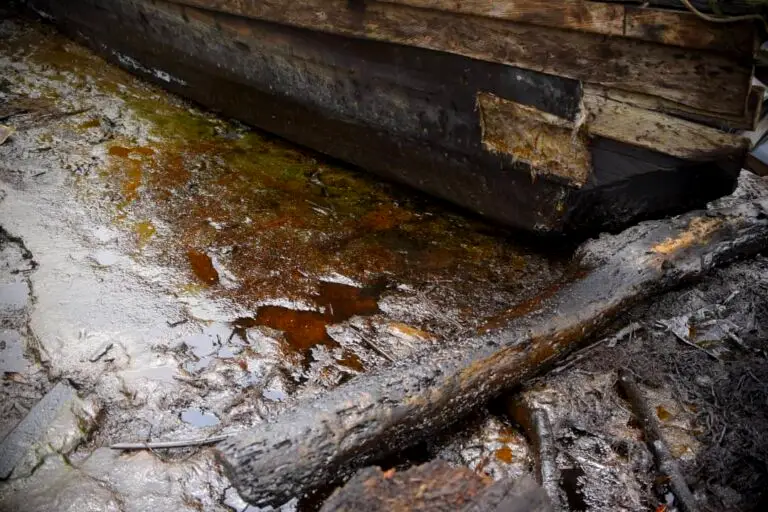By Nnimmo Bassey
The environmental history of Nigeria unfortunately is not a story filled with the rich biodiverse tropical rainforests of the Niger Delta or the cascading rich vegetation of the Sahel Savanna but rather, one marred with bloodshed, exploitation, pollution, death, destruction, and devastation. There was no agency in Nigeria that was saddled with the task of policing the environment until after the discovery in 1988 of toxic wastes that were dumped in Koko, a town in Delta State Nigeria.
Before then, Nigeria responded to most environmental problems on an adhoc basis, with citizens largely bearing the weight of impacts and responses. The Koko incident woke the nation to the need for planned and coordinated action and led to the creation of the Federal Environmental Protection Agency 1988(FEPA) through Decree 58. The agency was charged with the administration and enforcement of environmental laws.
Due to the inadequacy of existing laws for environmental protection prior to the Koko Toxic Waste Dump saga, one of the relevant decrees enacted by the then military government was the Harmful Waste (Special Criminal Provisions, etc) Decree 42.
Over the years, from I988 till present day, As Nigeria has grown in population, economy and politically, it also seems that our environmental problems, challenges have grown also. Indeed, you will find as many environmental problems and challenges as you care to name. Some of these challenges include the following:
Deforestation, illegal logging, bush burning, over grazing, desertification, industrial pollution, chemical pollution, oil pollution- including oil spills, toxic wastes and gas flaring, environmental degradation due to laxly regulated mining activities, solid waste management/medical wastes/electronic wastes/plastics and erosion – gully, coastal, etc.
Floods/droughts – most of our cities lack drainage plans and rural communities are at the mercy of the elements. Water pollution, sanitation, land grabs, false climate solutions – agrofuels, REDD (Reduced Emissions from Deforestation and Degradation)
We can add noise pollution to this list. The somewhat carefree attitude of the citizenry adds to the problems. A casual look around shows plastic water sachets all over most of our cities and at police/military checkpoints on our highways. These non biodegradable materials block drains and generally contaminate the environment.
Global Logic, Local impacts Although some measures are taken by the Nigerian government to tackle some of the prevailing environmental challenges there is little to show for these efforts. This happens because the problems are systemic. The inherently anti-people and anti-environment system sees the environment as something to be exploited, used, and discarded rather than as something to be cared for and respected.
The market logic that has been fetishised by the apostles of neoliberalism and the gods of the market are presented as incapable of going wrong. The system believes that whatever is needed can be created and whatever is broken can be technologically fixed. It also believes that whatever can be extracted must be extracted and whoever resists must be crushed.
We should say at this point that the rise of the market has led to a situation where rather than accumulating wealth from excess labour of exploited workers, today profit is made through what some term innovative financial instruments. In the environmental sphere some of these have been built on the backs of climate negotiation as well as on the so-called Green or Blue Economy. Economists describe this process as financialization or commodification of Nature.
The Green Economy idea itself is premised on the suggestion that nature is best protected when it is assigned a monetary value or when her services are monetised. In other words, it is said that people would not protect or defend Mother Earth except a price tag is placed on it. The sort of questions that are raised before nature is protected would be “what is the Ikogosi Warm Spring (Ekiti State) worth in Naira terms”? If it has a low value, it could be neglected, auctioned or even destroyed.
According to Pablo Solon, “Inequality is an inevitable product of capitalism. Social and environmental justice is only possible with system change.” His statement was a response to Jerry Muller’s article which we quote:
“In recent decades, developments in technology, finance, and international trade have generated new waves and forms of insecurity for leading capitalist economies, making life increasingly unequal and chancier for not only the lower and working classes but much of the middle class as well. The right has largely ignored the problem, while the left has sought to eliminate it through government action, regardless of the costs. Neither approach is viable in the long run. Contemporary capitalist polities need to accept that inequality and insecurity will continue to be the inevitable result of market operations and find ways to shield citizens from their consequences — while somehow still preserving the dynamism that produces capitalism’s vast economic and cultural benefits in the first place .
To be continued tomorrow
Bassey, Director, Health of Mother Earth Foundation (HOMEF) at the 68th Conference/Congress of the Historical Society of Nigeria held in Lagos…recently.

